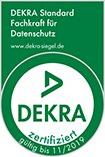Aktualisiert am:
The German economy continues to need skilled workers and is no longer able to find enough on the national and European labor market. It is therefore increasingly dependent on skilled workers on the international labor market to fulfill its needs. However, up to now these have had to overcome high hurdles to obtain a residence and work permit. For this reason, the Bundestag (German Parliament) passed the Skilled Immigration Act, which is intended to facilitate the integration of international skilled workers into the German labor market. In addition to ensuring a sufficient number of skilled workers, it is also intended to help strengthen the social security systems through new employees. To achieve this, §§ 18a, 18b and 18c of the Residence Act (AufenthG) were revised. They regulate the procedure for granting work and residence permits (Aufenthaltserlaubnis) and settlement permits (Niederlassungserlaubnis) for skilled workers with vocational training and academic degrees. The main points of the new German Skilled Immigration Act and the requirements of an work/residence permit will be presented and explained in more detail below.
§ 18a of the Residence Act – skilled workers with vocational training
18a of the Residence Act allows the authorities to grant a work/residence permit to a foreign skilled worker with vocational training so that he or she can pursue qualified employment.
What is a “skilled worker with vocational training”?
According to § 18 Abs. 3 Nr.1 AufenthG, a skilled worker with professional training is any foreigner who has a german qualified professional training or a professional qualification equivalent to a german qualified professional training. According to § 2 (12a) AufenthG, a domestic qualified vocational training is a vocational training which has been completed in a state-recognized or comparable training occupation and lasts at least two years. A list of the officially recognized training professions can be found at https://www.bibb.de/veroeffentlichungen/de/publication/download/16754
The vocational training does not have to have taken place in Germany. An equivalent foreign qualification is also sufficient. It is equivalent if there are no significant differences to German training. A diploma or certificate is important as proof of training and must be recognized in Germany. Further information on the recognition of a foreign professional qualification can be found at https://www.anerkennung-in-deutschland.de/html/en/pro/recognition-procedure.php
In summary, you are a skilled worker with vocational training if you:
- are a foreigner from a non-EU/EEA/Switzerland country
- Have completed at least 2 years of German or foreign vocational training
- The foreign vocational training was officially recognized (certificate important!)
For a work/residence permit according to § 18a AufenthG it is also important that the skilled worker has a qualified employment in Germany in which he/she has been trained. On the one hand, it must be a job that can only be done with the appropriate training, on the other hand, it must be just such a job. A trained scaffolder may not work as a hairdresser in Germany, for example, although this is a qualified occupation. Rather, he must work as a scaffolder in Germany, since he is trained in this profession. This has the sense that skilled workers should come to Germany in order to compensate for the shortage of skilled workers in corresponding branches. Since the German social systems are also to be strengthened, it only makes sense to employ skilled workers in qualified jobs with appropriate pay.
Which requirements must still be met to obtain a work/residence permit according to § 18a AufenthG?
The other requirements for a work/residence permit for a skilled worker with vocational training are found in §§ 5 and 18 of the Residence Act. They read as follows:
- Proof of securing livelihood
- Proof of identity (identification documents, birth certificate, etc.)
- Valid passport
- Concrete job offer
- Approval by the Federal Employment Agency
- If you are over 45 years of age and are receiving a work/residence permit for the first time, your monthly salary must also be at least €3,795 gross (2020) or you must be able to prove that you have a secure pension plan
- There must also be no interest in expulsion
How long is the work/residence permit valid?
According to § 18 (4) AufenthG the work/residence permit is granted for 4 years. However, if the employment contract is limited in time, the residence permit is only issued for the period of the employment.
§ 18b AufenthG – Skilled workers with academic degree
§ 18a (1) of the Residence Act allows the authorities to grant a work and residence permit to a foreign skilled worker with academic degree so that he or she can pursue qualified employment.
What is a “skilled worker with academic degree”?
According to § 18 (3) No. 2 AufenthG, a skilled worker with academic degree is any foreigner who holds a German, a recognized foreign or a comparable German foreign university degree. The university degree can come from a university or a university of applied sciences. Vocational training may also be considered under certain circumstances, provided it is equivalent to a university degree. In addition to German degrees, foreign university degrees are also accepted. You can find out whether your foreign university degree is also accepted at https://anabin.kmk.org/no_cache/filter/hochschulabschluesse.html
There is no need for a recognition procedure of the university degree, under certain circumstances only the comparability must be proven.
In summary, you are a skilled worker with academic degree, if you
- you are a foreigner from a non-EU/EEA/Switzerland country
- Have a German or foreign recognized or comparable university degree (university, university of applied sciences, possibly education)
For a residence permit according to § 18b (1) AufenthG it is also important that the skilled worker has a qualified employment in Germany in which he/she has been trained. It must therefore be a job that can only be performed with a corresponding qualification, and it must also be just such a job. A trained doctor may not work as a scaffolder in Germany, for example, although this is a qualified occupation. Rather, he must work as a doctor in Germany, since he is trained in this profession. In this case, however, he could also work as a nurse, since he is qualified accordingly, even if he were employed below his qualification.
What other requirements must be met in order to obtain a work/residence permit according to § 18b (1) AufenthG?
The further requirements for a work and residence permit for a skilled worker with academic training can be found in §§ 5 and 18 of the Residence Act. They read as follows
- Proof of securing livelihood
- Proof of identity (identification documents, birth certificate, etc.)
- Valid passport
- Concrete job offer
- Approval by the Federal Employment Agency
- If you are over 45 years of age and are receiving a work/residence permit for the first time, your monthly salary must also be at least €3,795 gross (2020) or you must be able to prove that you have a secure pension plan
- There must be no interest in expulsion
How long is the residence permit valid?
According to § 18 (4) AufenthG the work/residence permit is granted for 4 years. However, if the employment contract is limited in time, the work and residence permit is only issued for the period of the employment.
§ 18c (1) AufenthG – Settlement permit for skilled workers
In § 18c (1) AufenthG, the authorities are instructed without discretion to grant skilled workers a settlement permit (Niederlassungserlaubnis) under certain conditions. This does not even require the approval of the Federal Employment Agency.
Which skilled workers are covered by the regulation?
The regulation of § 18c (1) AufenthG is generally aimed at all foreign skilled workers, i.e. both with vocational training and academic degree.
Which requirements do I have to meet as a foreign skilled worker in order to obtain a settlement permit?
Length of stay
Those who are recognized as specialists must first have held a residence permit as such for 4 years.
However, this period is reduced to 2 years if the skilled worker has acquired his vocational training or academic education in Germany.
Workplace
The skilled worker must also have a job. As described above, a skilled worker may not work below his or her qualification.
Pension insurance
In addition, in order to obtain a settlement permit, the skilled worker must prove that he or she has paid into the statutory pension insurance for 48 months or prove that he or she has an appropriate pension plan.
This period is again reduced to 24 months if the vocational training or academic education was successfully completed in Germany.
German language skills
In order to do so, you must speak German sufficiently well, i.e. you must prove that you have B1 language level according to § 2 (11) AufenthG.
Other requirements
Furthermore, the general requirements for a settlement permit according to § 9 AufenthG apply. It should be noted here that the skilled worker
– can prove a secure livelihood,
– A work permit is available
– An apartment has
– Has basic knowledge of the legal and social order
– And there is no interest in deportation
It is also necessary that the identity is clarified and a passport is available.
If these requirements are all met, there is a right to the granting of a settlement permit. The settlement permit is then an unlimited work/residence permit.
Where can I get the work and residence permit or the settlement permit?
The local immigration office is responsible for granting the permits. You can find the nearest immigration office under https://www.bamf.de/EN/Service/ServiceCenter/BeratungVorOrt/Auslaenderbehoerden/auslaenderbehoerden-node.html
Important Note: This article has been prepared by mth Tieben & Partner for general information purposes only. Mth Tieben & Partner does not accept any liability to any person or organisation for the use or reliance of the information contained in this article. On any specific matter, kindly contact us by dialing 0049 (0)221 – 80187670 or sending us an email to info@mth-partner.de
Lawyers in Cologne provide legal advice on German immigration law.




